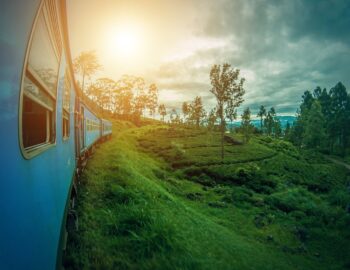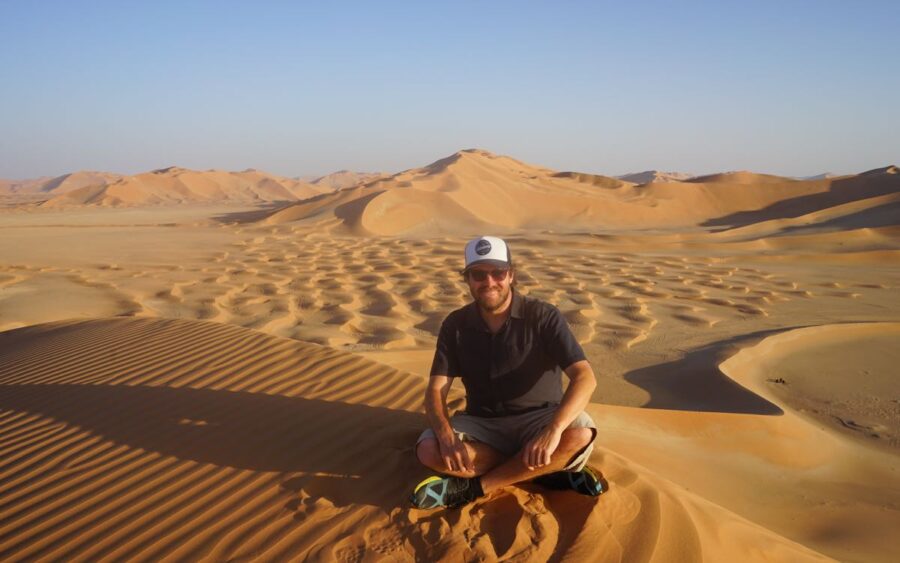These documentaries about Chile show a country of captivating landscapes and a tumultuous political history and delve into its unique cultural tapestry and societal struggles.
From the gripping accounts of the Pinochet era to explorations of the country’s geographical wonders, these documentaries give a compelling lens through which to understand Chile’s past, present, and the complex interplay of forces that have shaped its identity.
Documentaries About Chile
Of course, there are many other documentaries about Chile apart from the ones mentioned here, but these are some of the best ones to get you started that have a broad view on different aspects of the country.
The Battle of Chile (1975-1979)
The Battle of Chile is a documentary film series that chronicles the political events leading up to and during the 1973 Chilean coup d’état, as well as the subsequent developments during the early years of the military dictatorship in Chile.
The documentary was directed by Patricio Guzmán and produced between 1975 and 1979. The series is divided into three parts:
- The Insurrection of the Bourgeoisie – 1975: This part focuses on the political climate leading up to the 1973 coup against President Salvador Allende. It covers the social and economic tensions, as well as the political polarization in Chile.
- The Coup d’État – 1976: This segment documents the actual military coup on September 11, 1973, which led to the overthrow of Allende’s government. It portrays the events of that day and the immediate aftermath.
- The Power of the People – 1979: This final part examines the social and political changes that occurred in Chile under the military dictatorship of Augusto Pinochet. It explores the resistance movements and the efforts of the people to reclaim political power.
The Battle of Chile is considered a significant and powerful documentary that provides a unique perspective on the political upheavals in Chile during the early 1970s. It captures the complex interplay of political forces, social movements, and the impact of external influences on the fate of the country.
Nostalgia for the Light (2010)
Nostalgia for the Light is a documentary film directed by Patricio Guzmán, the same filmmaker who directed “The Battle of Chile.” The documentary takes a poetic and philosophical approach to explore themes of memory, time, and history.
The film is set in the Atacama Desert in Chile, known for its clear skies and dry climate, making it an ideal location for astronomical observations.
It juxtaposes two seemingly unrelated searches happening in the Atacama Desert – astronomers studying the universe and archaeologists searching for the remains of political prisoners who disappeared during the Pinochet regime. The vast desert becomes a metaphorical space where different quests for knowledge and understanding intersect.
While the film focuses on astronomy and archaeology, it delves into the painful history of Chile, particularly during the military dictatorship of Augusto Pinochet (1973-1990). The Atacama Desert, with its extreme conditions, is also a place where political prisoners were hidden and executed, leaving behind a haunting legacy.
“Nostalgia for the Light” reflects on the concept of time, exploring how the light observed by astronomers in the present is actually light that has travelled for thousands or even millions of years. This theme is contrasted with the search for the remains of disappeared political prisoners, highlighting the struggle to uncover the truth about the recent past.
The documentary has stunning cinematography, capturing the vast landscapes of the Atacama Desert and the celestial bodies observed by astronomers. The visuals contribute to the film’s meditative and contemplative atmosphere.
Wild Chile (2017)
Wild Chile is a documentary series that explores the diverse and stunning landscapes of Chile, showcasing its unique flora and fauna. The series provides a closer look at the country’s natural beauty, including its mountains, deserts, forests, and coastal areas.
It was part of a broader effort to document and highlight the natural wonders of Chile. The series typically features episodes dedicated to different regions and ecosystems, offering viewers a glimpse into the rich biodiversity and geography of the country.
If you are interested in nature documentaries about Chile and the beauty of the country’s landscapes, “Wild Chile” is an engaging and informative viewing experience.
The Pearl Button (2015)
The Pearl Button is another documentary directed by Chilean filmmaker Patricio Guzmán, released in 2015. Similar to his other works, such as “Nostalgia for the Light,” Guzmán explores themes related to Chile’s history, memory, and identity.
The documentary centers around the significance of water in Chilean history and culture. Guzmán reflects on the country’s geography, which is stretched along the Pacific Ocean, and how water has played a crucial role in shaping Chile’s identity.
“The Pearl Button” delves into the history and culture of the indigenous peoples of Chile, particularly the Kawésqar people who inhabited the region of Patagonia. The film explores their way of life, their connection to the water, and the impact of colonization on their communities.
As with many of Guzmán’s documentaries, political and human rights issues are intertwined with broader cultural and historical narratives. The film addresses the atrocities committed during the Pinochet regime, including the forced disappearances of political dissidents.
“The Pearl Button” has poetic storytelling, beautiful cinematography, and the ability to connect personal stories with larger historical and cultural narratives.
The Cordillera of Dreams (2019)
The Cordillera of Dreams delves into the significance of the Andes mountains in Chilean history, politics, and identity. It reflects on the impact of the mountains on the collective consciousness of the Chilean people.
The documentary combines stunning visuals of the Andes with interviews and personal reflections, creating a poetic exploration of the country’s past and present. The film also touches upon themes related to the political and social history of Chile, including the legacy of the Pinochet dictatorship.
The Cordillera serves as a metaphorical backdrop, symbolizing both the beauty of the landscape and the challenges faced by Chileans throughout their history. This is one of the best documentaries about Chile that you can watch and is a personal favourite of mine.
ReMastered: Massacre at the Stadium (2019)
ReMastered: Massacre at the Stadium is part of the “ReMastered” series produced by Netflix. The documentary explores the events surrounding the 1973 Chilean coup d’état and the role of Victor Jara, a popular folk singer and political activist, who was tortured and killed in the aftermath of the coup.
The title specifically refers to an incident that occurred in the National Stadium of Chile, where thousands of people were detained, and some faced violence and persecution during the political upheaval. The documentary investigates the circumstances of Victor Jara’s death and the broader political context in Chile during that time.
If you are interested in Chilean history, politics, and the impact on the arts during this period, “ReMastered: Massacre at the Stadium” provides a focused exploration of these themes.
The Pinochet Case (2001)
The Pinochet Case delves into the legal efforts to bring the former Chilean dictator Augusto Pinochet to justice. The film focuses on the attempts to prosecute Pinochet for human rights abuses, including the crimes committed during his regime (1973-1990).
The documentary covers Pinochet’s arrest in London in 1998 and the subsequent legal battles surrounding his extradition to Spain. The Spanish authorities sought to prosecute Pinochet for crimes against humanity.
The film explores the complex legal, political, and moral dimensions of the case, providing insights into the challenges of holding a former head of state accountable for human rights violations.
If you are interested in historical and legal documentaries about Chile, this film provides a comprehensive look at a significant chapter in Chilean and international history.
Surire (2015)
Surire is a visually stunning exploration of the Surire salt flat, a high-altitude saline lake located in the Chilean Andes.
The documentary captures the unique landscape of Surire and its surrounding areas, showcasing the flora, fauna, and traditional way of life of the people who inhabit the region.
The filmmakers use a poetic and observational approach to depict the interactions between nature and human presence in this remote and beautiful environment. It ability immerses you in the contemplative beauty of the Chilean highlands.
The Chicago Conspiracy (2010)
The Chicago Conspiracy explores the influence of the Chicago School of Economics, particularly economists like Milton Friedman, on Chile’s economic policies in the early 1970s.
Salvador Allende, Chile’s first socialist president, implemented reforms that were contrary to the free-market principles advocated by the Chicago School. This led to conflicts between the government and the economic elite.
The documentary examines how the United States, through organizations like the CIA, played a role in destabilizing Allende’s government. After the military coup in 1973, General Augusto Pinochet took power, and the Chicago School’s economic ideas were implemented more fully.
Beyond My Grandfather Allende (2015)
Beyond My Grandfather Allende is a deeply personal documentary that explores the life of Salvador Allende through the eyes of his granddaughter, Marcia Tambutti Allende. The film delves into the family’s history, intertwining personal memories with the broader political context of Chile during Allende’s presidency and the subsequent coup in 1973.
The documentary not only reflects on the political ideals and struggles of Salvador Allende but also examines the impact of his political career on his family, particularly his grandchildren.
Marcia Tambutti Allende’s intimate perspective provides viewers with a unique and emotional journey into the personal side of a political figure who played a significant role in Chilean history.
Chile
These documentaries about Chile provide insights into the country’s history, politics, and culture, offering a nuanced understanding of its complex past.
For more on the region have a look at the 10 best documentaries about Argentina.
Share the best documentaries about Chile:





